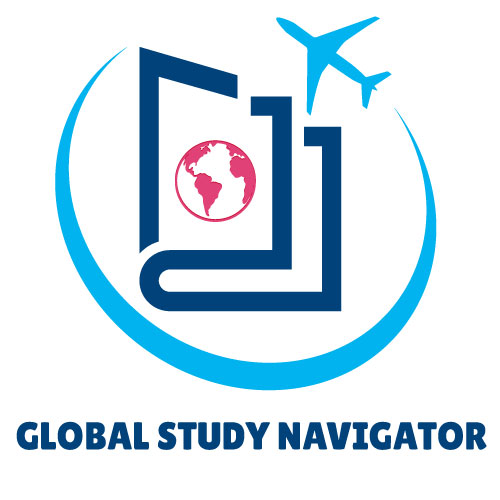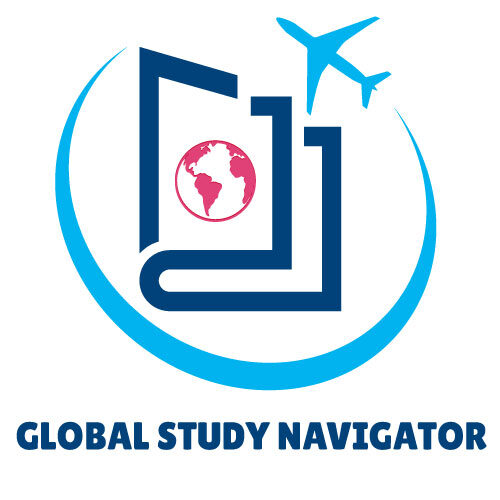Study In Germany
Imagine getting a top-notch degree from a German university and confidently starting your dream
Scholarship
Work Rights
Quick VISA
A Simple Yet Effective For International Students
Germany is increasingly becoming a magnet for international students who are drawn to its high-quality, innovative education system and the appealing prospect of tuition-free degrees.
Recent statistics show that nearly 400,000 students from around the world have chosen Germany for their higher education—a testament to its growing popularity.
So, today, in this article, we’ll explore the myriad reasons why Germany is a top study destination, from its world-class universities to its rich cultural tapestry.
We’ll also guide you through the practical steps, including academic requirements, financial considerations, and the visa application process, to help you navigate your journey to studying in Germany smoothly.

Why Study in Germany?
If you ask me which country I should pick for my study abroad,
I would choose Germany. Why? Here are the reasons
Excellent Education That’s Affordable
Germany is known for its great schools. Here, you can get a top-quality education, whether you’re studying for a bachelor’s, master’s, or PhD. And the best part? Many universities don’t charge tuition fees, making it easier for students from around the world to afford.
A Leader in Innovation and Engineering
Germany is a pioneer in engineering, technology, and science. If you study here, you’ll be right at the heart of exciting new developments. This is the country where cars were first made and where many new technologies are developed. Graduates are highly skilled and ready for great careers.
Diverse and Welcoming
Students from all over the world come to Germany. It’s a place that brings different cultures together. You can join clubs, meet students from various backgrounds, and learn new languages. Plus, getting around is easy with good public transport.
Hands-On Learning
German universities focus on real-world skills as much as they do on book learning. This means you’ll get to work on practical projects and internships, no matter what you study. It’s a great way to prepare for the job market.
Rich Culture and History
There’s so much to see and do in Germany outside of class. You can visit old castles, beautiful forests, and try delicious foods. There are music festivals, art galleries, and the famous Oktoberfest beer festival. Germany also has a fascinating history, including significant events like the fall of the Berlin Wall.
Requirements for Undergraduate and Postgraduate Studies in Germany
Before starting your German educational journey, let’s understand the academic qualifications you’ll need
Academic Entry Requirements
High School Diploma (Abitur):
To be admitted to a German university, you must hold a recognized university entrance qualification. In Germany, this is known as Hochschulzugangsberechtigung (HZB) or Abitur.
If your school-leaving certificate isn’t recognized in Germany, you may need to attend a one-year preparatory course called Studienkolleg.
Bachelor’s or Master’s Degree:
If you’re applying for a postgraduate program, include official transcripts and your diploma certificate from your previous university studies.
The number of ECTS credits (European Credit Transfer and Accumulation System) also matters. A bachelor’s degree has either 180 or 240 ECTS credits, while master’s programs require 90 to 120 ECTS credits.
Standardized Testing
TestAS:
Some universities may require an aptitude test called TestAS for international students from non-EU countries applying for undergraduate programs. It assesses cognitive abilities and subject-specific knowledge.
Language Proficiency Tests:
German Language Proficiency: If your degree program is entirely in German, you’ll need to prove your German language skills through tests like Deutsche Sprachprüfung für den Hochschulzugang (DSH) or TestDaF.
English Language Proficiency: If your course is taught in English and you’re not a native English speaker, you’ll need to provide IELTS or TOEFL scores.
GMAT
- (Graduate Management Admission Test): Some business schools in Germany may require GMAT scores.
Financial Considerations for Studying in Germany
Now, in this section, let’s learn about the tuition fees, living costs in different cities, and scholarship options to make your path easy for studying in Germany
Tuition Fees: What You Need to Pay
Germany is a beacon of affordability when it comes to higher education. Here’s what you need to know about tuition fees:
- Undergraduate Programs: Most public universities in Germany offer tuition-free education for international students. Yes, you read that right—no tuition fees! However, there might be a small semester contribution (around €100 to €300) that covers administrative costs, student services, and public transportation.
- Private Universities: While public universities are tuition-free, some private institutions charge tuition fees. These fees can vary significantly, ranging from €7,000 to €15,000 per year. Research thoroughly and choose wisely.
- Postgraduate Programs: Master’s programs at public universities continue the trend of affordability. Again, tuition fees are minimal or nonexistent. Private universities may charge fees similar to those for undergraduate programs.


Living Expenses
- Accommodation: Rent for a student apartment or shared flat (WG) ranges from €300 to €800 per month. Student dormitories are usually more affordable.
- Food: A monthly grocery budget is around €150 to €250. Eating out occasionally might add a bit more.
- Transportation: Public transport passes cost approximately €60 to €100 per month. Biking is also popular and economical.
- Health Insurance: Health insurance is mandatory. The average cost is €80 to €100 per month.
- Miscellaneous: Entertainment, phone bills, and other expenses sum up to about €100 to €200 per month.
Scholarships and Grants
- DAAD Scholarships: The German Academic Exchange Service (DAAD) provides scholarships for both undergraduate and postgraduate studies. These cover tuition fees, living costs, and travel expenses.
- University-Specific Scholarships: Many universities have their own scholarship programs. Check their websites for details.
- Government Scholarships: Some German states offer scholarships to international students. Look into programs like the Deutschlandstipendium.
- Erasmus+: If you’re an EU student, explore the Erasmus+ program for study exchanges and financial support.

Bank Statements & Financial Proof for Germany Student Visa
Now, Let’s dive into the financial aspects of studying in Germany, focusing on the essential requirements for obtaining a student visa.
Why Financial Proof Matters
When planning to study in Germany, securing a student visa is crucial. One of the key requirements is demonstrating that you have sufficient funds to cover your study and living expenses. This financial proof assures the German authorities that you won’t face financial hardship during your stay.
- DAAD Scholarships: The German Academic Exchange Service (DAAD) provides scholarships for both undergraduate and postgraduate studies. These cover tuition fees, living costs, and travel expenses.


How Much Money Do You Need?
The specific amount varies, but as a general guideline, you should show that you have access to around €12,000 per year. This figure covers both tuition fees (if applicable) and living costs. Here’s the breakdown
- Tuition Fees: If you’re attending a public university (where tuition is often free), focus on the living expenses component. However, if you’re enrolled in a private university, factor in the tuition fees as well.
- Living Expenses: The average monthly living expenses for a student in Germany range from €850 to €1,200. This includes rent, food, transportation, health insurance, and other essentials.
Accepted Forms of Financial Proof
- Blocked Account (Sperrkonto): This is a special bank account where you deposit the required funds (around €11,208). You can withdraw a fixed amount each month to cover your expenses. German authorities recognize this as a reliable form of financial proof.
- Scholarships and Grants: If you’ve secured a scholarship, provide the official award letter. Scholarships not only help financially but also enhance your profile.
- Bank Statements: Regular bank statements showing consistent funds can also serve as proof. Ensure they cover the required amount.

The Immigration Process
Here is the immigration process:
Collect Your Documents
Start by gathering a few important items for your visa application:
- Valid Passport: Check that it's up-to-date and has some empty pages.
- University Acceptance Letter: This confirms your enrollment at a German university.
- Financial Proof: Show that you have enough money to support yourself, whether through bank statements, a scholarship, or a sponsor's promise.
- Health Insurance: Make sure you have coverage for your entire stay in Germany.
- Language Proficiency (if necessary): If your courses are in German, you'll need to prove your language skills.
Find Your Embassy or Consulate
- Your visa application needs to go to the German embassy or consulate that covers your area. A quick online search can show you where to go.
Allow Time for Processing
- Visa processing can take a while, so apply at least three months before your trip. This way, you'll avoid any last-minute panic.
Always Refer to Official Sources
- For the latest and most accurate visa information, check out the Federal Foreign Office of Germany’s website: https://www.auswaertiges-amt.de/en . It has all the details you need about the visa process.
Final Thoughts
So, Germany offers an exceptional study abroad experience that’s both academically rewarding and surprisingly affordable. You’ll gain a top-notch education from world-class universities, often with free tuition fees!
Germany welcomes international students, and with careful planning, you can turn your dream of studying abroad into reality.
Don’t wait any longer! Explore university websites to find your perfect program and research scholarship opportunities.
Feel free to connect with us at Education Seed Global anytime to get personalized guidance from our visa consultant. They’re ready to ensure a smooth application process for you.

MSc, PhD, Postdoc
Varsity Resource shares information about Processors availability to take new student.
Scholarship Offer
Scholarship offer around the world can be see in a single platform
Research Offer
Research offer from professor or in a team can be found easily here
Higher Education
Varsity Resource helps student to find there dream education opportunity





